A city parkrun turns 250
The Glen River parkrun celebrates a major milestone this weekend: it will be the 250th time runners, joggers, and walkers supported by a small army of volunteers line up in the jewel in the Northside.

It’s the age-old question: why run, especially first thing on a Saturday morning, unless you’re being chased by a pride of lions?
And yet, every Saturday morning, on a small patch of grass straddling the Glen River as it dips and dives through the Glen River Park on the city’s Northside, a flock of runners gathers from 9 o’clock onwards. Some have been coming for years, others are in Cork for the weekend, and others still are just starting their running career. At 9:30 am sharp, they all set off in unison to complete five kilometres of the weekly parkrun.
I should add that some of them walk, and that’s totally fine!
The parkrun coming up this weekend is a wee bit special: it’s the 250th Glen River parkrun, and the organisers are asking runners and walkers to wear a bit of green, given the weekend that’s in it.
Clichéd as it is, none of it would happen without the team of volunteers, sometimes as many as a dozen or more, who turn up religiously to make sure the event runs like a well-oiled machine. And it always does.
Parkrun is a phenomenon, and its popularity and success likely owe as much to the age-old impulse to run in packs as to our ability to organise local and global events online.
As Marty Walsh, the event director for the Glen River parkrun, explained to me over a call this week ahead of the 250th parkrun in the Glen, the global recognition of the brand, and how it’s been so successfully devolved at a local level, has helped make it one of the most successful weekly sporting and truly community-driven events around the globe.
Equally important is how parkruns are not the preserve of the running or athletic community. If anything, they’re truly for the people, of the people, and by the people. They’re also chill while being health-focused.
In fact, as Marty pointed out, you don’t have to run at all. Walkers are more than welcome, as are joggers, first-timers, the very old, and the very young.

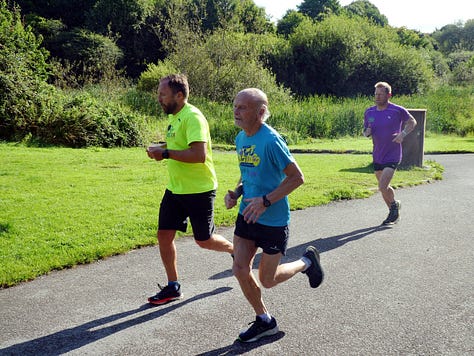
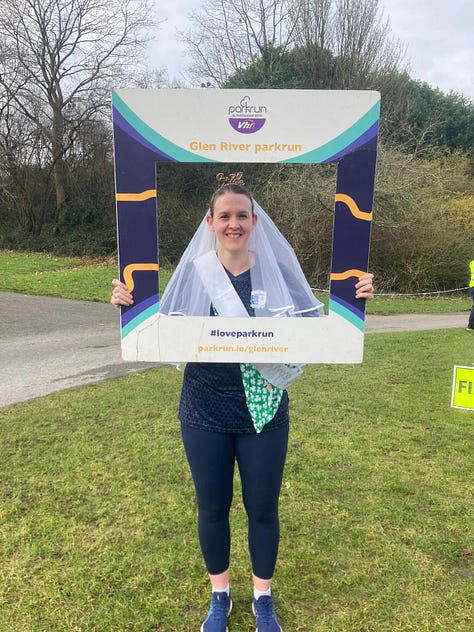
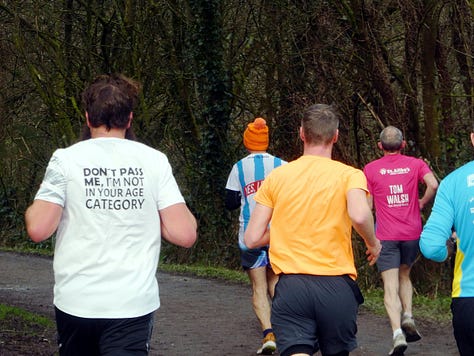
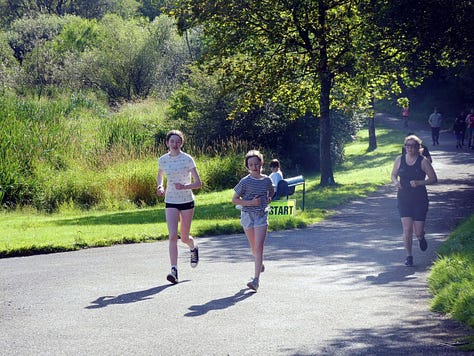
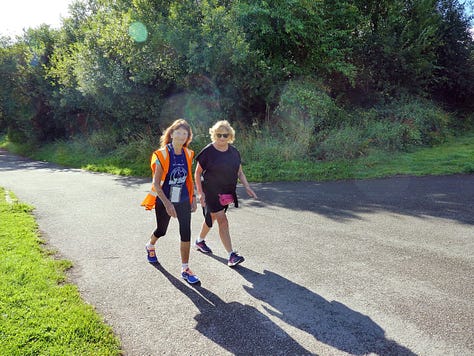
From Bushy Park to the Glen River Park
The first-ever parkrun took place in Bushy Park, London, in 2004. That run had a grand total of 13 runners, five volunteers, and someone managing a stopwatch. The parkrun grew at Bushy Park before spreading out around London and then the world.
The first parkrun in Ireland was held in Belfast in 2011 before moving south to Malahide in 2013. Fast forward just over a decade, and parkruns are now staged in every county in Ireland. There’s even a parkrun in Mountjoy Prison and on Bere Island. In fact, Ireland is now the most popular place for parkrun worldwide, with around 9% of the population here registered.
Earlier this year, Midleton joined the ranks of parkruns in Cork. The city has three 5km parkrun routes: Tramore Valley Park, the Glen, and Ballincollig. In the county, the most westerly parkrun is on Bere Island, while Youghal has the most easterly.
There are also junior parkruns, run over 2km, which take place on Sunday mornings at 9:30 am in Ballincollig, Ballinlough, Togher, and on the grounds of St Mary’s Campus on the Northside.
All of the parkruns kick off at 9:30 am, except when they don’t. More about that later. When runners register, they get a barcode, which they show when crossing the finish line. This barcode is used to track their time, and the timings are all posted online a few hours after the race.
St Luke’s via London
Marty, originally from Galway and working in the software industry, got involved in parkrun while living in Peckham. The park was across the road from his flat, and he would often see the runners striding by in laps. He’s been running for a long time, but he’s not the kind of runner who, within the first minute of conversation, tells you:
How many marathons he’s done,
His personal best,
What brand of runners he owns,
Or something to do with Strava.
In fact, during our entire conversation, Marty only mentioned these telltale signs to say that’s not really what runners and participants talk about in their post-run coffee meetups. That could also be because he’s deeply invested in the volunteering aspect of parkrun and the institutional good that comes from a free community event like this.
For example, on the first lap of the Glen River parkrun, one of the first volunteers you pass—aside from the two elderly lads who come out for their early morning constitution—is either Donal O'Donoghue or Michael Naughton. One, or both, are usually picking their way through the grass and bushes, collecting litter.
The volume of litter has greatly reduced in the years Marty’s been coming to the park in the Glen. More people using the park to walk, run, jog, take the dogs out, or just get five minutes of downtime has helped, as has the addition of bins by the City Council. Marty runs the park often and is down there almost daily with his dogs. The park has truly become a bright spot for the Northside, thanks to a community- and council-wide effort, as well as the work of the Glen Resource Centre, located just off the park.
The other person every runner in the Glen River parkrun meets is Bernie Murphy, kitted out in an orange high-vis jacket, marshalling the first corner. She makes sure new runners don’t set off on an extra-long route on their first lap. She’s also got a word of encouragement for runners coming back on the first long lap to help them along.
“Bernie’s daughters, and at times her granddaughters, run the parkrun,” Marty said. “But she’s there nearly every week on that corner—we generally call it Bernie’s Corner at this stage.”
“That’s the thing about parkrun,” Marty added. “There are great people volunteering who aren’t into running.”
In a way, Marty is one of them. He was barely in Cork a hot minute when he popped down to the Glen on his first weekend in the city, back in 2018, when he and his wife were making the move across the Irish Sea. He also helps out at junior parkruns, and the weekend before we spoke, he was in Midleton to volunteer.
He still runs, but when he visits other parkruns across the city and county, it’s to volunteer. He also gets a buzz out of pulling off an event, which is likely related to his previous career as a duty manager in theatre (he also volunteers at The Everyman).
Plus, he has a theory about volunteers and volunteering: they’re selfless and sound!
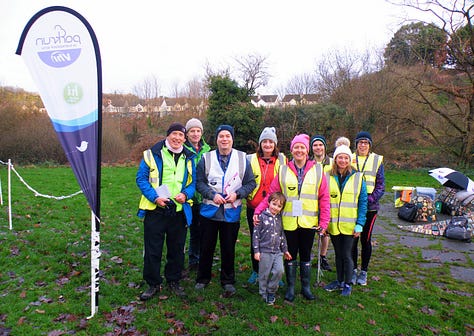

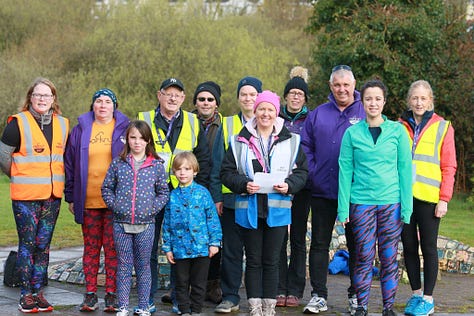

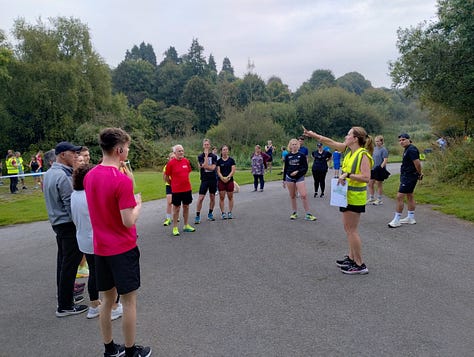
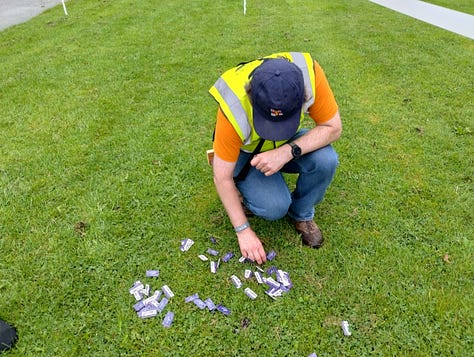
The course
What sets the Glen River parkrun apart from Midleton, Ballincollig, and Tramore Valley Park is the numbers, but also the course. Usually, the three other parkruns attract crowds of hundreds, which puts a fair amount of pressure on getting enough volunteers. Typically, the Glen attracts a crowd of between 50 and 100 runners and walkers.
Secondly, the others are, by and large, flat courses. The Glen, like a good Cork city accent, is anything but. It rises, falls, and percolates. And it’s a bit saucy at times.
Which brings me to the hill you meet at the western end of the course. Marty said they christened it Cnoc na nÓg, but the name didn’t stick. It’s more like Hardship Hill, though I can see why their branding committee would likely reject my suggestion.
“It’s a good workout, the Glen Park,” Marty said, while acknowledging it might also be why people prefer Ballincollig and Tramore.
“I think that hill is fantastic,” he added. “If you run or walk it twice, that in itself is a good cardio workout.”
The other thing Marty rightly pointed out is that Cork is a city built on hills, and they should be embraced.
“I think if you’re trying to avoid hills as a runner or walker, you’re making a mistake because you need them if you want some fitness for your regular life. If you live in Cork, you’ve got to do some hill work.”
Sometimes, the marshal on Hardship Hill will have a speaker blaring out their music of choice. Other times, the marshals like to have a bit of fun with where they place the cone.
The other part where they like to have fun is at the start line, where every so often one of the parkrun directors, after welcoming visitors and tourists and thanking sponsors, will segue to the “Five J for Five K” (J = jokes, K = I think you’ve got this).
Now, I, for one, and maybe I’m alone, thoroughly enjoy this little verbal detour, as much for the jokes as for some of the other runners’ reactions.
Take this Marty Whelan-like gem, which was trotted out recently: Algebra is a lot like divorce: Do you ever look at your X and wonder Y?
The jokes always come in a set of five, and there’s a lot of token Corkman jokes in the mix. What might be the funniest, unintended consequence is the reaction of some fellow runners, repeatedly glancing at their watches like they have somewhere to be. Please. Respect the craft. Or, at least, the effort.
The crew
I started doing the parkrun in the Glen last summer, thanks to an introduction from a friend. Together with my two sons, aged 7 and 11, we’ve run parkruns in the Glen, Tramore, and Ballincollig, but we keep returning to the Glen. That said, last weekend, when I went to wake Fionn up, he said his legs were “connected to the bed.” So, I ran solo.
We’ll all be out this weekend, though. Most of the regulars I now know by face, and they’re a friendly bunch. The volunteers always have a word of encouragement for the runners as we trudge around. If you’re fast, like the whippet who turns up every few weeks, you can complete the 5km course in under 18 minutes. If you’re like me, your time stays stubbornly well north of that. But time is relative. And, as Marty said, it’s a great way to start the weekend. Plus, coming back week after week, it’s great to see progress and the changing of the seasons in the park.
Marty told me that, from his vantage point marshalling at the top of the hill, he’s witnessed real progress.
“I’ve seen people, you know, who start off walking that hill, and then you see them a few months later running up it. It’s great to see the progress.”
I never ran in this format as a kid, and I wonder how motivated I would have been as a seven-year-old. But my two lads get around the course no bother. Fionn and I stick together (for kids under 11, you’re asked to stay alongside them). Sometimes, Haruki stays with us; other times, he’s off battling it out with our friend Heather.
Afterwards, we go for a snack with our small bunch of friends, talking about the run and everything else under the sun.
There was only once I regretted bringing the boys, and I remember feeling like that Chinese-American Tiger Mom who glued her kids’ fingers to the piano, or something to that effect.
It was a Saturday in early January, and lord, was it Baltic cold in the park. The two lads ran through gritted teeth, with tears freezing on their faces, and I thought, What have I done? And then I thought, What doesn’t kill you… wait, is this going to kill ye? It didn’t. About 30 minutes after running, and with a hot chocolate from our friend Siofra, they were thawed out and grand again.
The milestones
At the start of ever race, they organisers welcome the visitors. Many are Corkonians back in the city for a weekend form all parts of the country and overseas. There’s nearly always parkrun tourists from all parts of the globe. Once there was even a hen party from England; they did not run like they were hammered the night before.
Other visiting groups have included Deaf parkrun UK who joined forces with their counterparts from Deaf Parkrun Ireland and ran in the Glen in January of 2024.
And the organisers always ask or point out significant milestones at the start of every race. This weekend’s parkrun is a special one not just for the headline figure of 250, but also for one runner and volunteer in particular, Oonagh Goggin. That’s because she’s doing the double 100: 100 runs and 100 volunteers.
There have been some incredible milestones along the way, such as tail walker Mary Hoare, originally from Ballinspittle and living in the Glen. Now in her 80s, she’s run in the mini marathon in the city, 10kms in Killarney and she’s done over a hundred parkruns.
Which brings me back to the volunteers, the ones who act as time keepers, course marshalls, guides for first timers, those responsible for divying up the rota and logging all the times, course checkers, and all the other roles to keep the show on the road.
Marty’s theory, and he was at pains to stress his theory isn’t about self promotion, but it’s just that generally volunteers are sound and selfless. Magnanimous too.
Early on in our call I admitted I hadn’t volunteered, yet. Marty brushed it off, saying he knows for many people the park run might be one of the only walks or runs they get in on a week with a million things going on.
But he was keen to stress the qualities of volunteers: they’re sound and selfless.
“And I'm not saying that, you know, to big myself up. I'm just saying as a group, anytime you volunteer, you always meet really nice people because they're, you know, they're people who are happy to get out of bed and skip a run and put something back, so it’s fabulous you know.”
The Glen River parkrun takes place every Saturday morning at 9:30am with original race director Aishling Pierce returning to take over for this weekend. You can register to run or walk or if you’d prefer to volunteer (or do both) you can do so here. New volunteers are very much welcome.
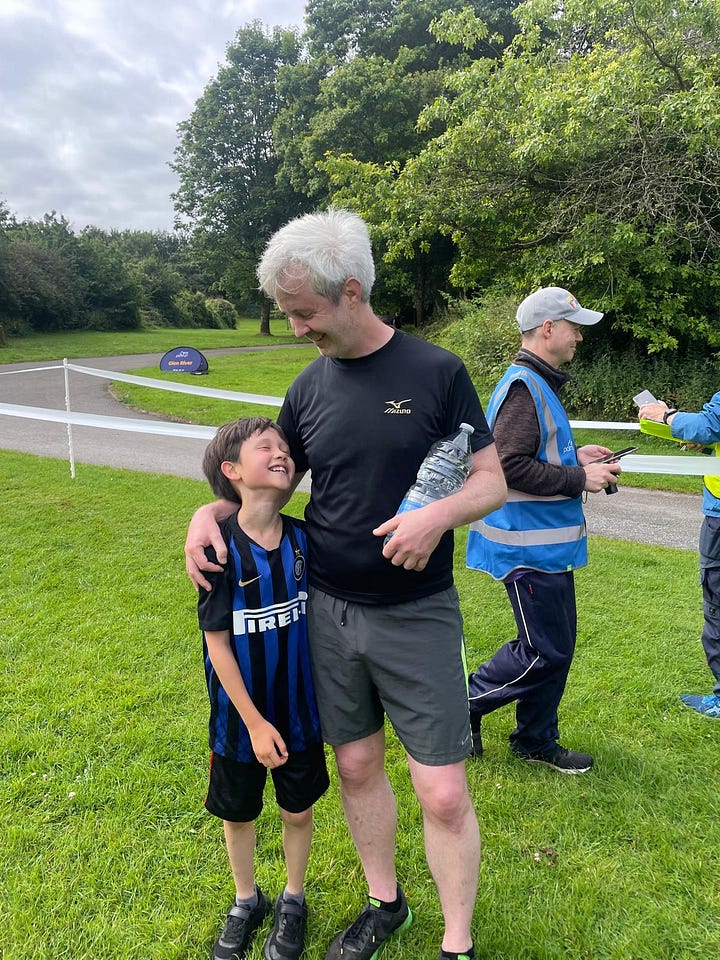
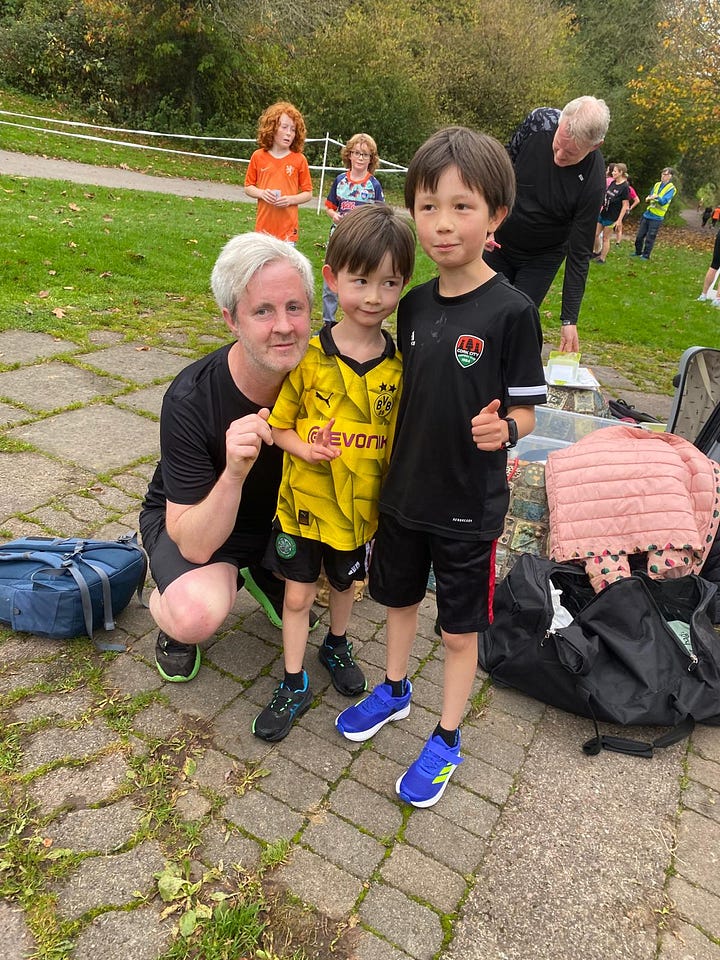
From the archive:
In an old quarry in St. Luke's, a community garden grows
It was the kind of magical weather day in which Cork sparkles: blackberries were ripening on the briars, the potatoes had been harvested, the grass was brown from weeks of sun and no rain and slowly, and in ones and twos, mothers and …
.

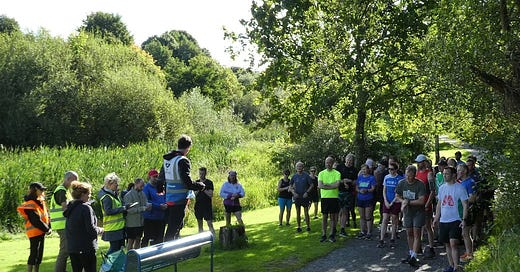





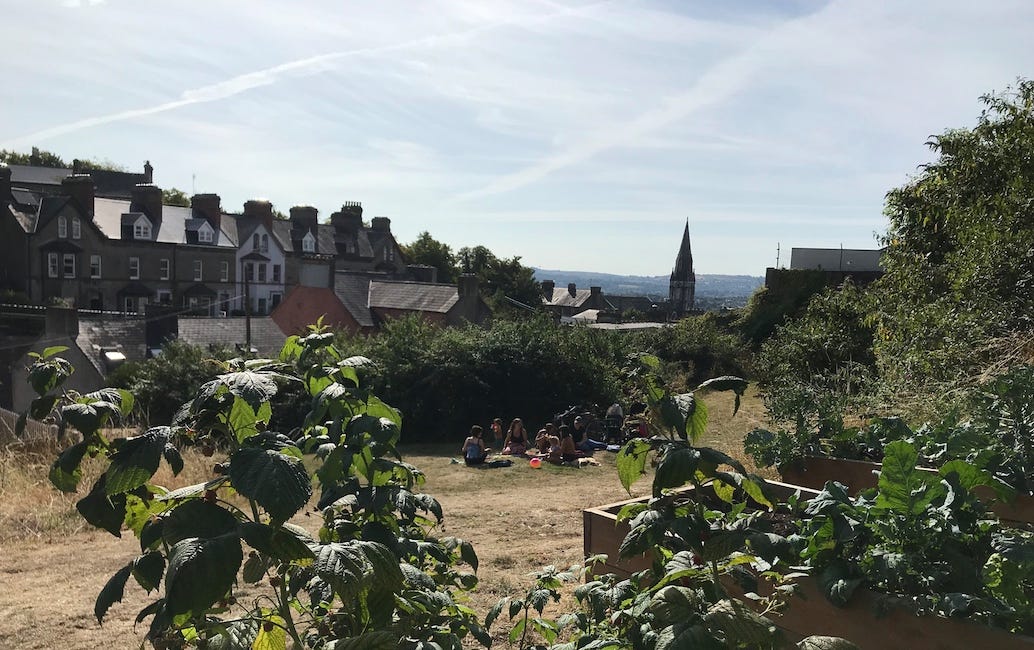
So lovely always to see the gahering and just to know its happening every Saturday - well done Marty and all the lovely volunteers you bring great happiniess to the Glen :)